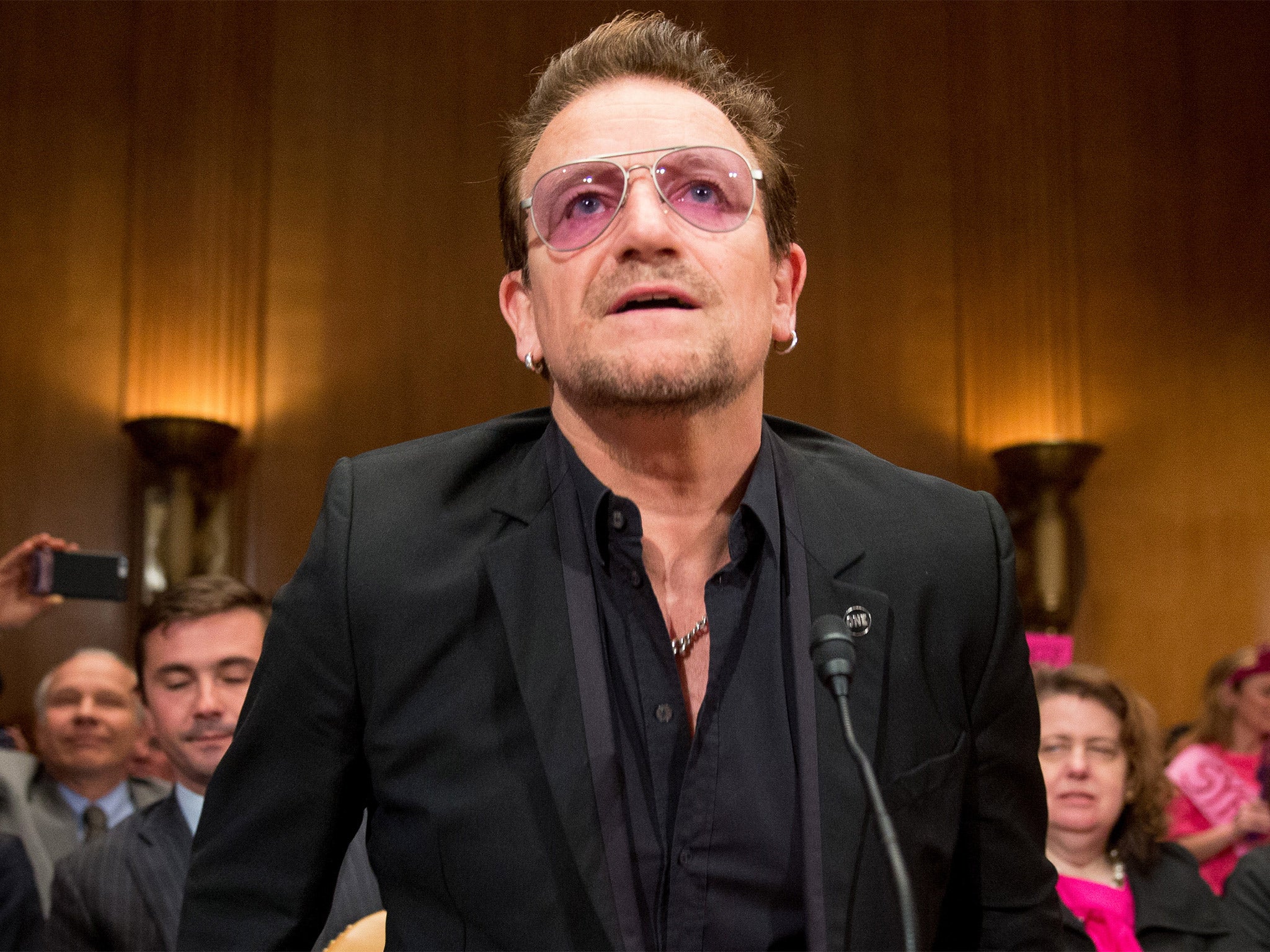Bono outlines three-point plan to tackle refugee crisis that ‘affects us all’
U2 frontman warns of the consequences of allowing other countries, such as Libya or Egypt, to sink deeper into anarchy as Syria has done

Your support helps us to tell the story
From reproductive rights to climate change to Big Tech, The Independent is on the ground when the story is developing. Whether it's investigating the financials of Elon Musk's pro-Trump PAC or producing our latest documentary, 'The A Word', which shines a light on the American women fighting for reproductive rights, we know how important it is to parse out the facts from the messaging.
At such a critical moment in US history, we need reporters on the ground. Your donation allows us to keep sending journalists to speak to both sides of the story.
The Independent is trusted by Americans across the entire political spectrum. And unlike many other quality news outlets, we choose not to lock Americans out of our reporting and analysis with paywalls. We believe quality journalism should be available to everyone, paid for by those who can afford it.
Your support makes all the difference.Bono has urged the US and the developed world to face up to the refugee crisis, saying it is “not just a Middle Eastern or African problem, it’s a European problem. It’s an American one, too. It affects us all.”
The U2 frontman – real name Paul Hewson – recently returned from a humanitarian visit to Africa and the Middle East. He presented the outline of a three-point plan to tackle the crisis in an editorial for the New York Times. He is also due to testify to the US Congress, on the “causes and consequences of violent extremism and the role of foreign assistance.”
The first solution to the problem, Bono wrote, is to bolster the humanitarian support presently being offered to refugees from the Syrian civil war and other regional crises by the United Nations High Commissioner for Refugees (UNHCR). The organisation, he claimed, is “chronically underfunded by the very governments that expect it to handle this global problem.”
He also called on the countries who host refugees to see them “not just as a burden, but as a benefit”, by offering them training, education and job opportunities. “The refugees want to work,” he said. “They were shopkeepers, teachers and musicians at home, and want to be these things again, or maybe become new things.”
Finally, he appealed for further development assistance to those countries most affected by the refugee crisis. The musician advocated a new version of the Marshall Plan - the US economic aid programme that helped to rebuild Europe following World War Two – for those countries whose institutions and civil society have been crippled by the crisis and its causes.
“If Nigeria, a country many times larger than Syria, were to fracture as a result of groups like Boko Haram, we are going to wish we had been thinking bigger before the storm,” he wrote.
The singer travelled to several refugee camps in Turkey with a group of Republican US Senators including former presidential candidate Lindsey Graham, of South Carolina. He described the camps as “car parks of humanity”.
“It seems insane or naïve to speak of hope in this context, and I may be both of these things,” he said. “As hard as it is to truly imagine what life as a refugee is like, we have a chance to reimagine that reality - and reinvent our relationship with the people and countries consumed now by conflict, or hosting those who have fled it.”
Bono has long been almost as famous for his advocacy as for his music, vocally supporting groups such as Amnesty and Greenpeace before establishing his own charitable organisations such as (RED), which fights Aids and HIV, and ONE, which tackles poverty and disease.
“Hope is not lost in the Middle East and North Africa,” he said, “not yet, not even where it’s held together by string. But hope is getting impatient. We should be too.”
Join our commenting forum
Join thought-provoking conversations, follow other Independent readers and see their replies
Comments